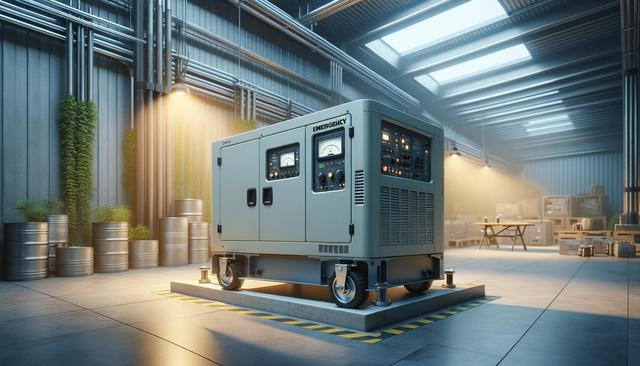Staying Prepared with an Emergency Generator
Power outages can happen unexpectedly, and having an emergency generator ensures you’re never left in the dark.

Why Invest in an Emergency Generator?
Unforeseen power outages can disrupt daily life, from spoiled food in the refrigerator to the inability to charge essential devices. An emergency generator provides a reliable backup power source that helps maintain comfort and safety during these situations. Whether due to extreme weather, grid failures, or maintenance issues, outages can last from a few hours to several days. Having a generator on standby can make a significant difference in how you manage through such periods.
Generators are valuable for both homeowners and small businesses. For families, they can keep heating or cooling systems running, preserve food supplies, and power medical equipment. For businesses, they ensure operational continuity and protect sensitive data from loss due to sudden shutdowns. Considering these benefits, an emergency generator is more than just a convenience—it’s a form of risk management for unexpected circumstances.
Types of Emergency Generators
There are several types of emergency generators available, each suited for different needs. Understanding the options can help you find the right fit for your home or business. The main types include:
- Portable Generators – Easy to move and store, ideal for short-term or occasional use.
- Standby Generators – Permanently installed and automatically start when the power goes out.
- Inverter Generators – Known for quiet operation and clean power, suitable for electronics and sensitive devices.
Portable models are generally more affordable and can power essential appliances. In contrast, standby generators are more powerful and can support entire households or commercial buildings. Inverter generators are popular for their fuel efficiency and are often used in recreational settings but can also serve during emergencies.
Fuel Sources and Efficiency
Emergency generators run on various fuel types, and the choice of fuel can impact performance, availability, and storage. Common fuel sources include:
- Gasoline – Widely available but has a shorter shelf life.
- Diesel – Offers more energy per gallon and is often used in heavy-duty models.
- Propane – Burns clean and is storable for longer periods.
- Natural Gas – Convenient for homes already connected to a gas line.
Each fuel type comes with its pros and cons. For instance, gasoline can be easily sourced but may not be ideal for prolonged outages. Propane and natural gas provide cleaner energy and longer shelf life, making them practical for long-term emergency preparedness. The efficiency and runtime of a generator will also vary based on fuel type and generator capacity, so it’s essential to consider your specific power needs before making a selection.
Installation and Safety Considerations
Proper installation and safety practices are crucial when using an emergency generator. Incorrect installation can pose risks such as carbon monoxide poisoning, electrical hazards, and fire. For standby generators, professional installation is often required and involves connecting the unit to your home’s electrical panel and fuel source. Portable units should always be operated outdoors and away from windows, doors, and vents.
Key safety precautions include:
- Never run a generator indoors or in enclosed spaces.
- Use heavy-duty extension cords rated for outdoor use.
- Install carbon monoxide detectors in your home.
- Keep the generator dry and protected from rain and snow.
Routine maintenance is also important to ensure the generator starts and runs efficiently when needed. This includes checking oil levels, inspecting fuel lines, and testing the unit periodically. Some models come with self-test features or remote monitoring, adding an extra layer of convenience and reliability.
Choosing the Right Generator for Your Needs
Selecting the appropriate emergency generator depends on your power requirements, budget, and intended usage. Start by listing the critical appliances or systems you want to keep running during an outage. This might include:
- Refrigerators and freezers
- Heating or cooling systems
- Medical devices
- Lights and communication devices
Calculate the total wattage required and choose a generator that can handle the load with a margin for safety. Remember to factor in startup watts, which are often higher than running watts for many appliances. Portable models may suit smaller households or temporary needs, while standby systems are better for continuous and automatic power supply. Consulting with a professional can help you make an informed decision tailored to your specific situation.
Conclusion: Be Ready for the Unexpected
An emergency generator can be a worthwhile investment for those seeking peace of mind during power interruptions. It offers reliability, convenience, and a way to maintain daily routines when the grid goes down. From selecting the right type to understanding fuel and safety considerations, thoughtful planning ensures you are prepared when the unexpected occurs. Whether for home or business use, having a dependable backup power source is a practical step toward resilience and readiness.